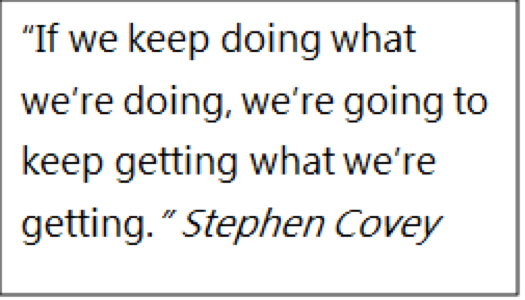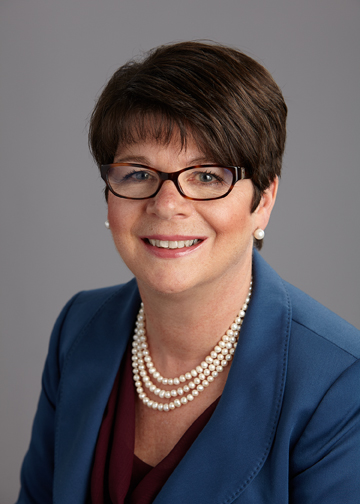For The Love Of Money
 Why Cultivating A Positive Relationship With Money Is The Highest Form Of Self-Care
Why Cultivating A Positive Relationship With Money Is The Highest Form Of Self-Care
If money were your lover, how would you describe your relationship? M. I. A., non-committal, or head over heels in love? When I lead a “Let’s Talk Money for Women Only™” workshop, I open with this question. The knee-jerk reaction for many attendees is a nervous giggle. Relationship with money? It’s an inanimate object, what are you talking about?
Results Leave Clues
If there is a gap between where you want your finances to be today and where they are, your relationship with money needs work. Ask yourself these questions:
1. Does your debt balance make you nervous, or cause you to lose sleep?
 2. Have you asked for a raise, or if self-employed, raised your rates?
2. Have you asked for a raise, or if self-employed, raised your rates?
3. Do you spend money on others before buying what you want and/or need?
4. Can you have a money conversation without stress?
5. Have you had a relationship break down because of money disagreements?
If you answered “yes” to questions 1, 3, or 5, and “no” to questions 2 or 4 you will benefit by developing a better relationship with money.
Patterns Are Habits That Can Be Changed
Think about it. If you are losing sleep because of money worries, how are you showing up to the outside world? Are you able to perform at a high level at work
 The Talk
The Talk
Why is talking about money stressful? A recent study conducted by Wells Fargo showed almost half of American’s surveyed believe money is a taboo conversation. More than one-third said they were uncomfortable talking with family about their finances. Many stated they would rather have the sex talk with their teen than talk about money. Let that sink in for a moment. People prefer conversations about sex over money.
A Vicious Cycle
If a person’s money belief is that money is a taboo subject, they don’t ask questions or try to learn better money behaviors. They don’t seek advice. They might be embarrassed about how much debt they have, or their low balance in their savings or investment accounts. By not getting to the root of their patterns and beliefs, their behavior, and outcome never improves. This can result in conflict in a relationship where one person is a saver and the other a spender. When the credit card bill arrives, conversations can get intense, so couples avoid money conversations. Avoidance doesn’t make the problem go away. It perpetuates a negative money relationship, which perpetuates negative self-worth, which can cause the relationship to break down.
There Is Hope
Breaking through this barrier by learning to have productive money conversations is a positive step toward strengthening your relationship with money. The process is empowering. Talking about money is like a workout for your wallet. Each time you have a conversation, you are building your money muscles. As you get stronger, your confidence grows. With increased confidence, your self-worth expands. Once you believe you are worthy, asking for what you are worth, learning to receive and putting yourself first becomes your new self-care habit. Add in the habit of conscious spending and you can see how your money stress will soon melt away.
Five Easy Pieces To The Money Mojo Puzzle
Here are 5 simple, stress-free steps to help you have positive money conversations.
 1. Forgive yourself. We’ve all made mistakes. Beating yourself up will not help you or anyone else. When Henry Ford designed the automobile, he gave us a large front windshield and a small rear-view mirror so we spend more time looking at what is in front of us. It’s time to stop looking in the rearview mirror and focus on what is ahead.
1. Forgive yourself. We’ve all made mistakes. Beating yourself up will not help you or anyone else. When Henry Ford designed the automobile, he gave us a large front windshield and a small rear-view mirror so we spend more time looking at what is in front of us. It’s time to stop looking in the rearview mirror and focus on what is ahead.
2. Find someone you trust who you feel has good money habits. It can be a relative or friend. Ask them if they are open to giving you some financial guidance. Start with non-invasive questions. For example, ask for guidance about what percent of income should you be saving, or how to determine if your debts are too high for your income. If you are not comfortable going to someone you know, look for an objective professional that will give you either a free or low-cost consultation to get you started.
3. If you are in a relationship, schedule time for money conversations. This is an opportunity to discover if you are both on the same page. Make the first money talk light. A good first topic is something fun, like planning a trip or special night out. Here are some ideas to get you started:
■ How much vacation time do you get?
■ How do you like to use your paid time off?
■ If you’re planning a vacation, how do you decide where to go?
4. Be honest with friends. If your goal is to use your surplus cash to pay down a loan and your friends want to try an expensive restaurant, don’t make excuses for not joining them. By telling them the truth about where you stand financially, your friends might offer a more affordable alternative
5. Be open to learning. Look for money education podcasts you can listen to during your commute. Find websites, webinars and live events like the ones offered by the coaches of the Money Coaching Institute. Be open to working with an objective, unbiased professional. Be sure the coach will provide accountability, guidance, and financial education. Investing in yourself by working with the right coach can shorten your learning curve and help you attain your goals faster.
Make a commitment today to take action. Implement at least one of these ideas and concepts. I hope they inspire you to take care of yourself by creating a positive relationship with money.
 Bio:
Bio:
Therese R. Nicklas is a Certified Money Coach (CMC)® and CERTIFIED FINANCIAL PLANNER™.
For close to 20 years, Therese (Terri) has coached clients toward building long term wealth so they can enjoy financial freedom.
Over the years, Therese witnessed the negative effect a lack of financial knowledge creates, especially for women that don’t have control over the family’s finances. Her journey brought her to develop an education and coaching system to help women by empowering them with smart money strategies.
Therese works with women that are ready to take action and passionate about living their life by design and not by default. She is one of a few practitioners certified in Money Coaching and Financial Planning. Her distinct coaching system helps her clients understand the money patterns, beliefs, and behaviors that created their results. Her money coaching process inspires action by teaching new behaviors that get results quickly. By clearly defining and designing their ideal lifestyle, clients develop a positive relationship with money and learn to have fun with the planning process.
Helping clients plan for the future while enjoying the present is not a job for her, it is a calling. She sums her philosophy up by saying “live your life by design, not by default.”
Therese lives her life by design when she’s spending time with friends and family, traveling, cooking and hiking with her rescue dog Gracie and grand-dog, Jackie."
Therese has been featured in the Wall Street Journal, Forbes Magazine, Financial Planning and more. She is a sought-out speaker, serving as a subject matter expert for many alternative wellness and healing centers, divorce mediators and community groups.

800 Hingham Street Suite 200 Rockland, MA 02370 - 781.413.1090 - [email protected]






